Alpha Phi Sigma is a National Criminal Justice Honor Society founded in 1942 at Washington State University by Dr. Vivian Anderson and 17 Police Science majors to promote excellence in scholarship and performance. On March 24, 1976, the Executive Board of the Academy of Criminal Justice Sciences voted to designate Alpha Phi Sigma as the National Criminal Justice Honor Society. Since that time, Alpha Phi Sigma has grown from 14 chapters to over 360. Visit Alpha Phi Sigma’s Website: http://www.alphaphisigma.org/home-1.html.
The University of Lynchburg Pi Omicron Chapter of Alpha Phi Sigma was chartered on March 31, 2015.
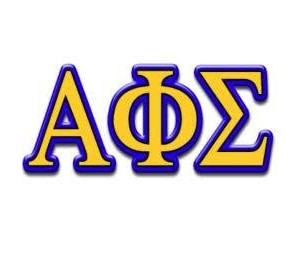
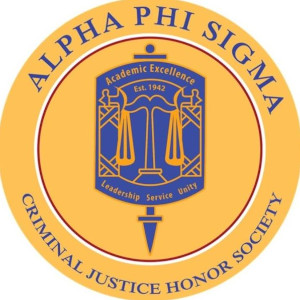
Lynchburg Inductees
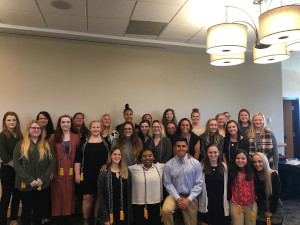
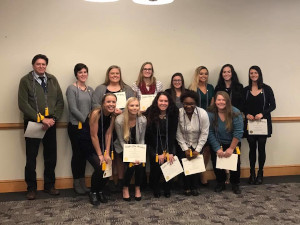
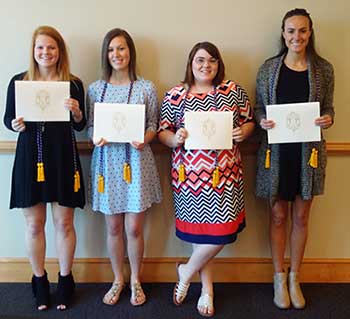
Member Requirements
To become members, undergraduate students must:
- be enrolled at the time of application in the institution represented by the chapter,
- have declared a major, minor or equivalent in the criminal justice or related field,
- have completed 3 full time semesters or equivalent, and
- have a minimum GPA of 3.2 on a 4.0 scale, with a minimum GPA of 3.2 in courses in criminal justice related fields and rank in the top 35% of their class. A minimum of four courses of the above course work shall be in the criminal justice field.
Graduate students must:
- be enrolled at the time of application in a graduate program in criminal justice or related field in the institution represented by the chapter,
- have completed 4 courses,
- have a minimum GPA of 3.4 on a 4.0 scale.
Alpha Phi Sigma Mission
The mission of Alpha Phi Sigma is to promote analytical thinking, rigorous scholarship, and lifelong learning; to keep abreast of the advances in scientific research; to elevate the ethical standards of the criminal justice professions; and to sustain in the public mind the benefit and necessity of education and professional training.
Alpha Phi Sigma Purpose
The purposes of Alpha Phi Sigma are to promote academic excellence through the recognition of scholarship; to assist in the development of professional and personal leadership among students and practitioners; to provide opportunities for service to the community and the profession; and to encourage greater communication among member chapters and the entire criminal justice profession.



